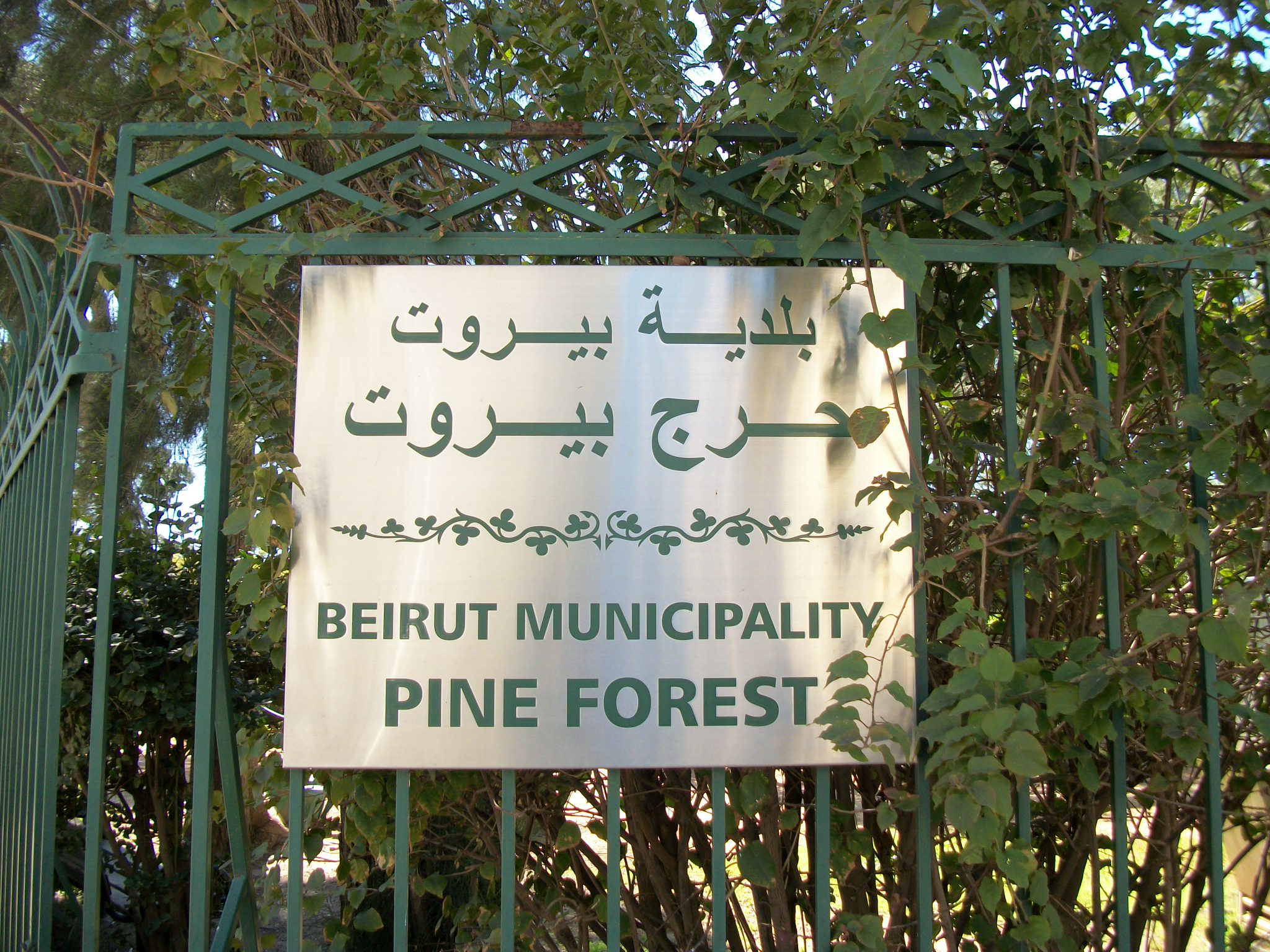The Beirut Municipality closed the capital’s public parks during the first COVID-19 lockdown implemented by Lebanese authorities, back in early 2020. Today, the parks remain closed despite the reopening of indoor dining and entertainment destinations such as restaurants, pubs, and malls—with the implementation of preventative measures to limit the spread of the coronavirus.
It’s not strange for the municipality to shut the gates of the only free public space that residents of the capital can breathe in. After all, the municipality once closed Horsh Beirut for 20 years. What’s strange is that the Beirut Municipality spent more than LBP 280 million between 2020 and 2021 on “irrigating, digging, and weeding gardens” according to a report published by Public Works Studio.
The report is based on information released by the Municipal Council, which attributed the expenses vaguely to the city of Beirut and sometimes to locations like Ras Beirut, Ain Mraisseh, Msaytbeh, Bachoura, Zokak El Blat, Achrafieh, Mdawar, Rmeil, Saifi, Al Mazraa, and Saqyet Al Janzeer.
Why these expenses were incurred—despite the complete closure of gardens and absence of their maintenance—remains unknown.
The excuses that keep them shut
Prior to June 2016, access to Horsh Beirut was restricted to foreigners and visitors who acquired prior permission from the municipality. Those above the age of 35 also enjoyed access to the urban park.
The most prominent pretense utilized by the municipality in making such a decision was a desire to avoid turning the park into a conflict zone for its surrounding residents—specifically between those in Shiyah and Qasqas.
The Beirut Municipality also took the “uncivilized” behavior of the Lebanese into consideration, a prejudiced assumption that waste would be left in place and public property damaged should Horsh Beirut be opened to the public.
The same municipality is closing these public spaces again using different, but equally illogical, excuses.
Given that they’re indoors and often without proper ventilation, opening coffee shops, restaurants, and bars poses a greater threat to public health and social distancing. Yet, Lebanese authorities imagined that public parks—open spaces that are well ventilated—are a COVID-19 threat.
Watch | For Profit, Not People: How Beirut Lost Its Public Green Spaces
Gross negligence
A clear need for public parks exists today, whether it is the pandemic or the economic collapse that necessitates free and open spaces to meet and be entertained in.
The report by Public Works shows the blatantly gross negligence of the state with regards to the safety of its citizens. Lebanese authorities also seem intent on depriving those unable to spend money in a coffee shop, restaurant, or bar of their right to access public spaces and find moments of rest in a crowded city.
Other than addressing the near total absence of maintenance and management of public parks, the report highlights that the Beirut Municipality has shrugged its responsibilities to turn its lands into the public spaces that the city desperately lacks or to acquire lands for this purpose.
As such, Public Works cooperated with multiple other groups to petition the Beirut Municipality and the Prime Minister to open parks to the public once more.
What was done around the world
The petition highlights how authorities across global cities have, since the beginning of the pandemic, noted the importance of providing their constituents with public spaces and the ability to access fresh air.
For example in Hong Kong, authorities have taken several measures to limit the spread of the virus while simultaneously ensuring that citizens can meet outside. This includes public transportation, with a mask-wearing requirement set.
Similarly in New York, public gardens remained open when the lockdown was imposed on condition that social distancing be maintained.
In the Venezuelan capital, Caracas, authorities put a plan in place to re-open public beaches and gardens after seven months of closure. After every week of lockdown, citizens were allowed to gather out in the open as long as they followed social distancing procedures and other COVID-19 regulations.
Even when the rules were at their strictest, parks and gardens remained open throughout London’s lockdown. The local authorities there even launched initiatives to widen sidewalks and create temporary lanes for bicycles.
In Dubai, authorities opened up gardens and beaches at 40 percent capacity before other destinations became accessible in later stages.
How the petition was met
The petition stresses the responsibilities that Beirut Municipality has and the availability of enough resources that allow it to both reopen public gardens in the capital to all visitors and support the process with municipal guards.
The Municipal Council responded to the petition by referring it to a legal counsel that will look over the petition—meaning, forget it.
Public Works also received an oral response from a representative of the Ministry of Social Affairs that said some gardens were closed based on the decision of the national COVID-19 committee and others were closed for restoration. The petition did not receive any response from the Prime Minister’s office.
Opening public gardens in Lebanon is essential, especially in light of the renewed surge in COVID-19 cases. During the heaviest phases of the pandemic and a time when major cities around the world closed all of their institutions, parks remained open as the only free and safe destination for all.


